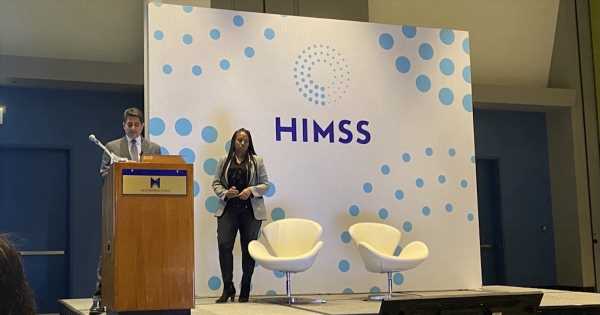CHICAGO — At a panel discussion at the HIMSS Global Conference on Tuesday, panelists highlighted the importance of minority and historically marginalized populations having a seat at the table during the decision-making process to improve health equity using technology.
“Some have said technology can be the great equalizer in medicine by improving access to care for some historically marginalized communities and breaking down the traditional walls of the exam room, but we know that this won’t happen by accident,” said Dr. Bobby Mukkamala, a member of the American Medical Association board of trustees. “In fact, if technology is not intentionally developed for the purpose of being that equalizer, it can backfire and serve to widen that gap.”
Technology developers have to be strategic and purposeful during the development process, he said.
It’s also vital to acknowledge the history and current concerns of these marginalized communities, said Dr. Aletha Maybank, chief equity officer at the American Medical Association.
“We do want to believe that we value all people equally, but our systems and structures don’t, which means we as a people who are creating [innovations] and putting them in place, helping them move forward, also probably have some biases,” Maybank said.
The panelists expressed the need for resources to be redistributed, especially in the context of who is making decisions and providing financing. Doing so will boost marginalized population health and advance a company’s growth.
“We’re excited about the potential of health innovation in the space with all of its funding and resources and attention to advance health equity,” Mukkamala said. “But we’re also highly concerned about what the health innovation sector will continue to do if racial equity and social justice are not embedded in its work and how inequities will continue to be perpetuated with that work.”
Suchi Saria will offer more detail in the HIMSS23 session “Responsible AI in Healthcare: Application to Development Governance.” It is scheduled for Wednesday, April 19, at 2:30 p.m. – 3:30 p.m. CT in the South Building, Level 5, room S503.
More regional news

Complex care startup Memora Health scores $30M

Easy-to-use devices key to equitable remote patient monitoring

AI needs rules and regulations to evolve effectively
Source: Read Full Article
